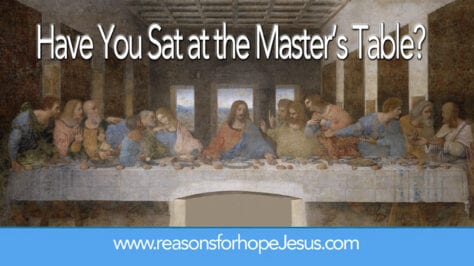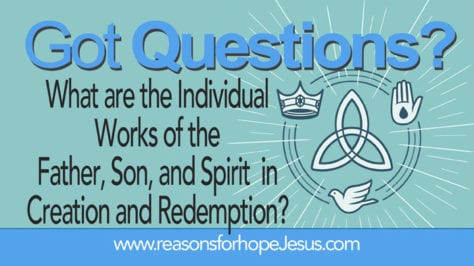
Wikipedia states that “Going to Hell in a Handbasket” is a saying of unclear origins. However, there is good reasoning that suggests it originated from the Bible, as do many of our common, everyday sayings.
Posted on the Wikipedia page is a picture from New Orleans that features “Going to Hell in a Handbasket” on a children’s wagon, with children alongside as part of a Mardi Gras celebration. We know that under no circumstances should “going to hell” be celebrated (“in a handbasket” or any other way). Similarly, songs like “Highway to Hell,” that present the idea of hell as a big party, reveal the foolishness of those who do not know God’s truth.
“Going to Hell in a Handbasket” has several variations including, going to hell in a handcart, going to hell in a handbag, go to hell in a bucket, sending [something] to hell in a handbasket, and something being like hell in a handbasket. We’ll focus on “going to hell in a handbasket” and show that, while that phrase is not found in the Bible, the concept is found there.
From a passage in Zechariah comes a vision that conveys the idea of someone who has given into the evils of the world and is headed toward a home in a wicked place.
“Going to Hell in a Handbasket”
In the prophet Zechariah’s vision (Zech 5:5-11) is a woman (defined as wickedness) in an ephah. An ephah is an ancient Hebrew dry measure equivalent to a bushel, so we can understand this to be the personification of wickedness in a bushel basket. The basket is being lowered by two more women (also wicked) with wings of a stork. A stork is defined by God as an unclean bird, even an abomination (Lev 11:13-19). The land of Shinar is mentioned as the place where the wicked/evil women are taking the basket and where they will build it a house. Shinar is another name for Babylon — an ungodly, wicked kingdom that held God’s people captive. Read the Scripture passage, keeping those things in mind:
Zechariah 5:5-11 Then the angel that talked with me went forth, and said unto me, Lift up now thine eyes, and see what is this that goeth forth. And I said, What is it? And he said, This is an ephah [basket] that goeth forth. He said moreover, This is their resemblance through all the earth. And, behold, there was lifted up a talent of lead: and this is a woman that sitteth in the midst of the ephah. And he said, This is wickedness. And he cast it into the midst of the ephah; and he cast the weight of lead upon the mouth thereof. Then lifted I up mine eyes, and looked, and, behold, there came out two women, and the wind was in their wings; for they had wings like the wings of a stork: and they lifted up the ephah between the earth and the heaven. Then said I to the angel that talked with me, Whither do these bear the ephah? And he said unto me, To build it an house in the land of Shinar: and it shall be established, and set there upon her own base.
This handbasket has in it a wicked woman (representative of all who die in their sins) and it is being carried to a place of wickedness (i.e. hell), which will be home. In that place, it will “be established” (the handbasket with the woman will remain there) “upon her own base” (the house/hell is built is upon a foundation of wickedness).
Using God’s Word
God’s Word has influenced man’s thoughts, words, and deeds since the beginning of time and it’s easy to see the influence of this passage in the saying “going to hell in a handbasket.” Let us never forget how impactful the Bible is in everything we think and say, and how beneficial it is for instruction in daily life.
Little common, everyday saying that originated from Scripture can be used to open conversations of spiritual importance. Learn them and listen for them….even use them…and then be quick to ask, “do you know where that saying comes from?”
 The Book Who Said That?
The Book Who Said That?
From the words of God come many short sayings used in conversations. The book, Who Said That? Common Everyday Sayings…where do they come from? shares more than 140 sayings that originate from the Bible. Add it to an Easter Basket, tuck it in a Christmas stocking, give it as a summer read, or buy it for yourself to get equipped, BECAUSE…
It’s easy to start conversations, but it’s not easy to make them about matters of spiritual importance.
Turn the Talk
Jesus commissioned us to tell others about who He is and about the saving grace He offers to all sinners. Starting such conversations isn’t always easy. We must learn to listen for opportunities to “turn-the-talk.” Hearing a common saying, or using one as you speak, opens the “door” to share the origin of the words in the Bible and to talk about the importance of the Bible and the Person who wrote it!
Who Said That? can also serve as a type of “tract” for your non-believing family and friends. It’s simply a look at the origins of sayings that we all use…until you get to the last few pages. The book closes with the saying, “Yada, yada, yada,” which means “you know, you know, you know.” The biblical foundation for this saying is given and then the statement is made: “God knows [yada] you” and the question is asked, “Do you know [yada] Him?” The question is followed by a gospel presentation and an invitation to repent and trust in Christ, making this book a non-verbal way to share the gospel with an unsaved (and often uninterested or unwilling-to-listen) friend. Let them read for themselves how significant God’s Word is and how true are His promises.
Buy the book! CLICK HERE
All proceeds from products at the store go to support the ministry outreach of Reasons for Hope* Jesus.
<*}}}><
*******
Jesus is the Reason this Ministry Exists
At Reasons for Hope* Jesus, we are committed to equipping, encouraging, and empowering Christians to know Jesus better, love Him more, and share their faith. We also reach the lost through our Salvation Page.
With your support, we can continue to provide valuable resources and engaging content. Please join us in our mission by donating today. Your generous contribution helps us expand our outreach of sharing biblical truths and hope in Jesus. Thank you for your kindness and for being an integral part of our mission.
*******
*******
***A Hidden Message in Psalm 23?***
Hidden in the six verses of Psalm 23 are 11 names for Jesus. When you subscribe to our newsletter, we’ll send you The Names of God in Psalm 23 PDF that reveals all 11 names and Scripture verses of comfort and hope (link will be sent in your confirmation email).
 A Room with a View of Eternity—The Last Will & Testament of Jesus Christ Take a seat at the Master's table. Learn about the riches He gives to all who are His. This book will bless and encourage you, give you hope, and help you live in the joy of your salvation and the riches of Christ that are yours.
A Room with a View of Eternity—The Last Will & Testament of Jesus Christ Take a seat at the Master's table. Learn about the riches He gives to all who are His. This book will bless and encourage you, give you hope, and help you live in the joy of your salvation and the riches of Christ that are yours.

The Top Ten Got Questions? in 2023
- The Meaning of NUMBERS in the Bible?
- Was Jesus CRUCIFIED on Wednesday, Thursday, or Friday?
- How was Jesus Like a Worm? What’s the CRIMSON (OR SCARLET) WORM in Psalm 22?
- How are the Shepherd’s ROD and STAFF Different?
- How long did JOB SUFFER?
- What is the Significance of the Wise Men's THREE GIFTS? And were they kings?
- Did The Wise Men Arrive 12 DAYS AFTER JESUS’ BIRTH? Or Was It Much Later?
- Jesus’ Last Days TIMELINE: the Cross and the Resurrection
- The Meaning of COLORS in the Bible?
- Did Jesus Fight Satan to Take Back the KEYS of Death and Hell?
There is much to be learned from those who have gone before us in the faith. Check out our Cloud of Witnesses category that features the words of departed saints who are now with the Lord in glory. Their words equip and encourage us even to this day. Take a few minutes to hear...
- ONLY ONE LIFE, Twill Soon Be Past – by C.T. Studd (1860 – 1931)
- “The Love of God is Greater Far” by Frederick M. Lehman (1917)
- Prayers from Billy Graham
- Who Was Robert Robinson? What’s the Story Behind “Come Thou Fount”
- “Immanuel” — A Poem by Charles Spurgeon (1834-1892)
- Who Am I? A Poem by Deitrich Bonhoeffer (1905-1945)
- Understanding the Everlasting Arms of God, by J.R. Miller (1840–1912)
- 24 Reasons Why I Love America, by John Wayne (1907-1979)
- Give Me Perpetual Broken-heartedness (from The Valley of Vision)
- Abide with Me, by James Smith, 1859
This remains one of our most popular pages viewed.![]()

TOP TEN Videos from Reasons for Hope* Jesus
- Memorial Day BAGPIPES TRIBUTE: Amazing Grace
- RISE AND SHINE and Give God the Glory, Glory!
- WERE YOU THERE When They Crucified My Lord?
- PAUL HARVEY: THE BIRDCAGE
- PRESIDENT RONALD REAGAN: A SOLDIER'S PLEDGE
- Hark! the Herald Angels Sing -- CHARLIE BROWN Christmas
- JOHN WAYNE ~ WHY I LOVE AMERICA
- Jimmy Stewart - Nativity Scene Prayer: Mr. Krueger's Christmas
- THE LEGEND OF THE CANDY CANE - A Christmas Story to Share
- Not by Might, Not by Power, But BY MY SPIRIT says the Lord (Zechariah 4:6)
*****************























